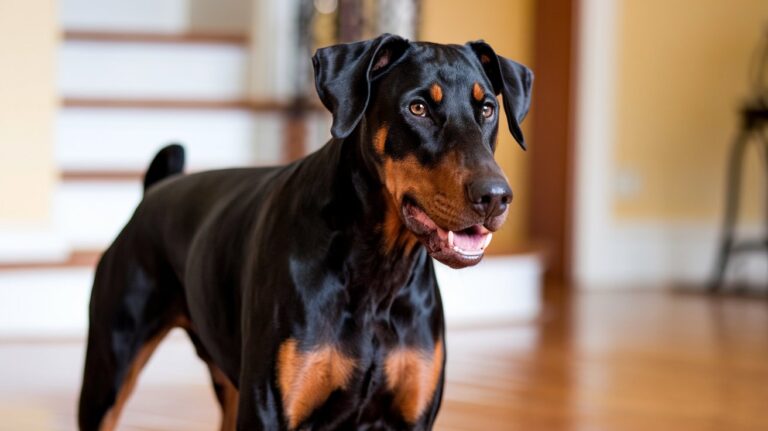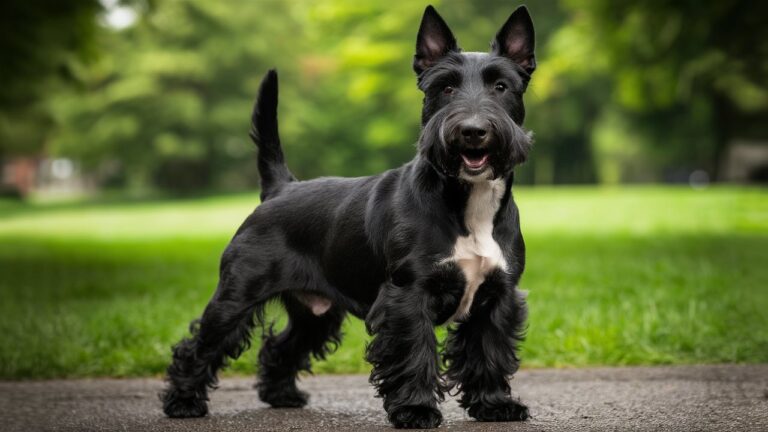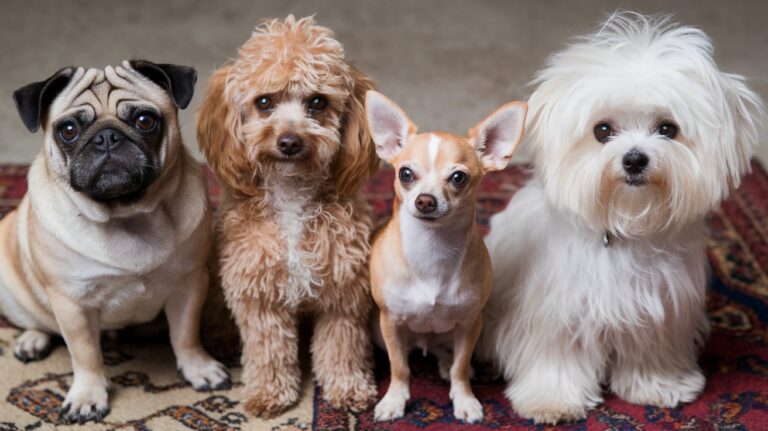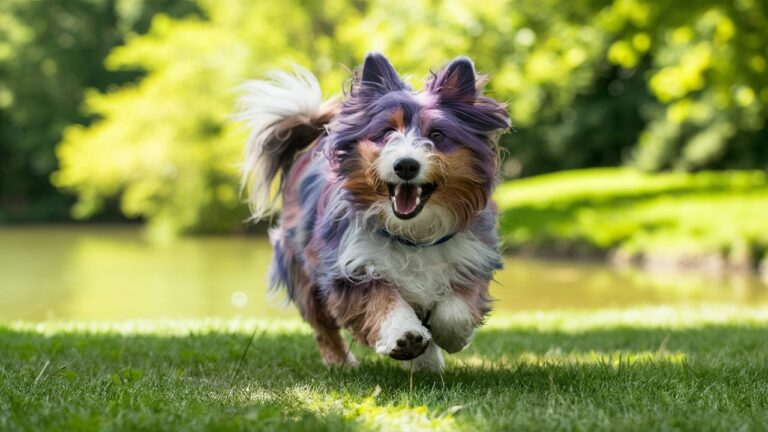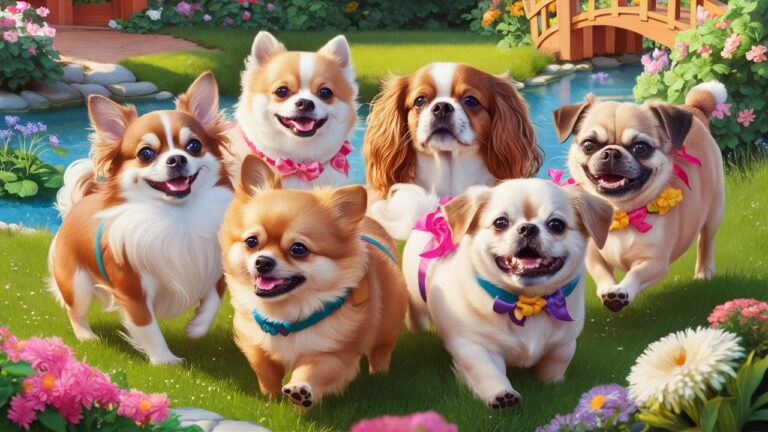A Deep Dive into 5 Guard Dogs the Loyal Guardians
When you think of a guard dog, what comes to mind? Perhaps a fierce-looking German Shepherd patrolling a yard, or maybe a sturdy Rottweiler standing watch at the gate. Guard dogs have long been revered for their loyalty, courage, and ability to protect their owners and property. But there’s more to these canine defenders than meets the eye. This article explores the history, traits, and training of guard dogs, offering insights into why these breeds have earned a special place in our hearts and homes.
The Role of Guard Dogs Through History

Guard dogs have been around for centuries, serving various roles in different cultures. From ancient Egypt, where they protected tombs, to medieval Europe, where they guarded castles, these dogs were essential in keeping intruders at bay. One of the earliest known breeds, the Mastiff, was used by the Romans in warfare and to guard estates. Their size and strength made them formidable opponents, and their loyalty to their handlers was unmatched.
In more recent history, guard dogs have been employed in various roles, from protecting livestock on farms to serving in the military and police forces. Their keen senses and ability to detect danger have made them invaluable assets in security and law enforcement. But beyond their professional roles, guard dogs have also become beloved family members, providing not only protection but also companionship and love.
Characteristics
Not all dogs are cut out to be guard dogs. The most effective guard dogs possess a combination of intelligence, loyalty, courage, and a natural protective instinct. These traits allow them to quickly assess situations and respond appropriately, whether that means deterring an intruder or simply standing watch over their family.
1. Intelligence: Guard dogs need to be smart enough to distinguish between real threats and harmless situations. This intelligence also makes them easier to train, as they can quickly learn commands and understand their role in protecting their home and family.
2. Loyalty: A good guard dog must be fiercely loyal to its owner. This loyalty drives their protective instincts, ensuring that they will put themselves between their family and any perceived threat without hesitation.
3. Courage: Guard dogs must be brave enough to face potential dangers head-on. Whether it’s confronting an intruder or standing their ground in a threatening situation, a guard dog’s courage is one of its most important qualities.
4. Protective Instinct: While some dogs may be naturally friendly and outgoing, guard dogs have an innate protective instinct. They are wary of strangers and quick to sense when something is amiss, making them excellent watchdogs.
Popular Breeds
Several breeds have been recognized for their guarding abilities, each bringing unique qualities to the role. Here are a few of the most popular guard dog breeds:
1. German Shepherd: Often the first breed that comes to mind when thinking of guard dogs, German Shepherds are known for their intelligence, loyalty, and versatility. They are commonly used in police and military work due to their keen senses and ability to be trained for various tasks.
2. Rottweiler: Rottweilers are powerful dogs with a strong protective instinct. Their imposing presence alone can be a deterrent to intruders. However, they are also known for being affectionate with their families, making them excellent family pets as well as protectors.
3. Doberman Pinscher: Dobermans are fast, agile, and fearless. They are often used in security roles due to their quick response time and sharp senses. Despite their fierce reputation, Dobermans are known to be loyal and affectionate with their families.
4. Bullmastiff: Originally bred to guard estates, Bullmastiffs are known for their strength and protective nature. They are gentle with their families but can be intimidating to strangers, making them excellent guard dogs.
5. Belgian Malinois: Similar to the German Shepherd, Belgian Malinois are frequently used in military and police work. They are highly intelligent, trainable, and possess a strong work ethic, making them ideal for guarding and protection roles.
Training: Balancing Protection and Family Life

Training a guard dog is a delicate balance between enhancing their natural protective instincts and ensuring they remain well-behaved and safe around family members and visitors. Professional training is often recommended, especially for first-time owners, to ensure the dog understands commands and can differentiate between friend and foe.
1. Socialization: From a young age, it’s important to socialize a guard dog with different people, environments, and situations. This helps them develop a sense of what is normal and what might be a threat, reducing the likelihood of unnecessary aggression.
2. Obedience Training: Basic obedience training is crucial for any dog, but especially for guard dogs. Commands like “sit,” “stay,” “come,” and “leave it” are essential for controlling the dog in various situations, ensuring they respond appropriately to their owner’s instructions.
3. Controlled Aggression: While a guard dog’s protective instinct is valuable, it’s important to control their aggression. Training should focus on teaching the dog when to bark or act protectively and when to remain calm. This ensures that the dog doesn’t become overly aggressive or react unnecessarily to non-threatening situations.
4. Ongoing Training: Guard dog training is not a one-time event but an ongoing process. Regular practice and reinforcement of commands help keep the dog sharp and responsive to their role as a protector.
Personal Anecdotes: The Guardian Angels in Our Lives
Growing up, our family had a German Shepherd named Max. Max was more than just a pet; he was a member of the family. My parents got him when I was just a toddler, and from the moment he arrived, he took his role as guardian seriously.
One evening, when I was around five years old, my parents were in the backyard working on some gardening, and I was playing in the front yard. Unbeknownst to us, a stranger had approached our house. Max, who was usually calm and friendly, immediately sensed something was off. He positioned himself between me and the stranger, his body tense and his eyes locked on the intruder. He didn’t bark or growl, but his presence alone was enough to make the stranger back away and leave.
Max’s actions that day left a lasting impression on me. It wasn’t just about protection; it was about his unwavering loyalty and love for our family. He was always there, watching over us, ready to step in if needed. Even after he passed, the memory of Max and his protective nature has stayed with us, a reminder of the deep bond between a guard dog and their family.
Is This Dog Breed Right for You?
While the idea of having a guard dog can be appealing, it’s important to consider whether it’s the right choice for your lifestyle. Guard dogs require time, training, and a strong leadership presence to thrive. They are not just pets but working animals with a specific role, and their needs should be carefully considered.
If you live in a high-risk area or have a large property that requires protection, a guard dog might be an excellent choice. However, if you’re simply looking for a companion animal, other breeds might be better suited to your needs.
It’s also worth noting that owning a guard dog comes with responsibility. These dogs are powerful and capable, and it’s essential to ensure they are well-trained and properly managed to prevent any potential issues.

Conclusion: The Heart of a Guardian
Guard dogs are more than just protectors; they are loyal companions who form deep bonds with their families. Their courage, intelligence, and protective instincts make them invaluable in keeping us safe, but it’s their loyalty and love that truly set them apart.
Whether you’re considering getting a guard dog or simply appreciate the role they play in our lives, it’s clear that these noble animals have earned their place as guardians of our homes and hearts. And who knows? Maybe one day you’ll have your own Max, watching over you and your loved ones with the unwavering dedication that only a guard dog can provide.
